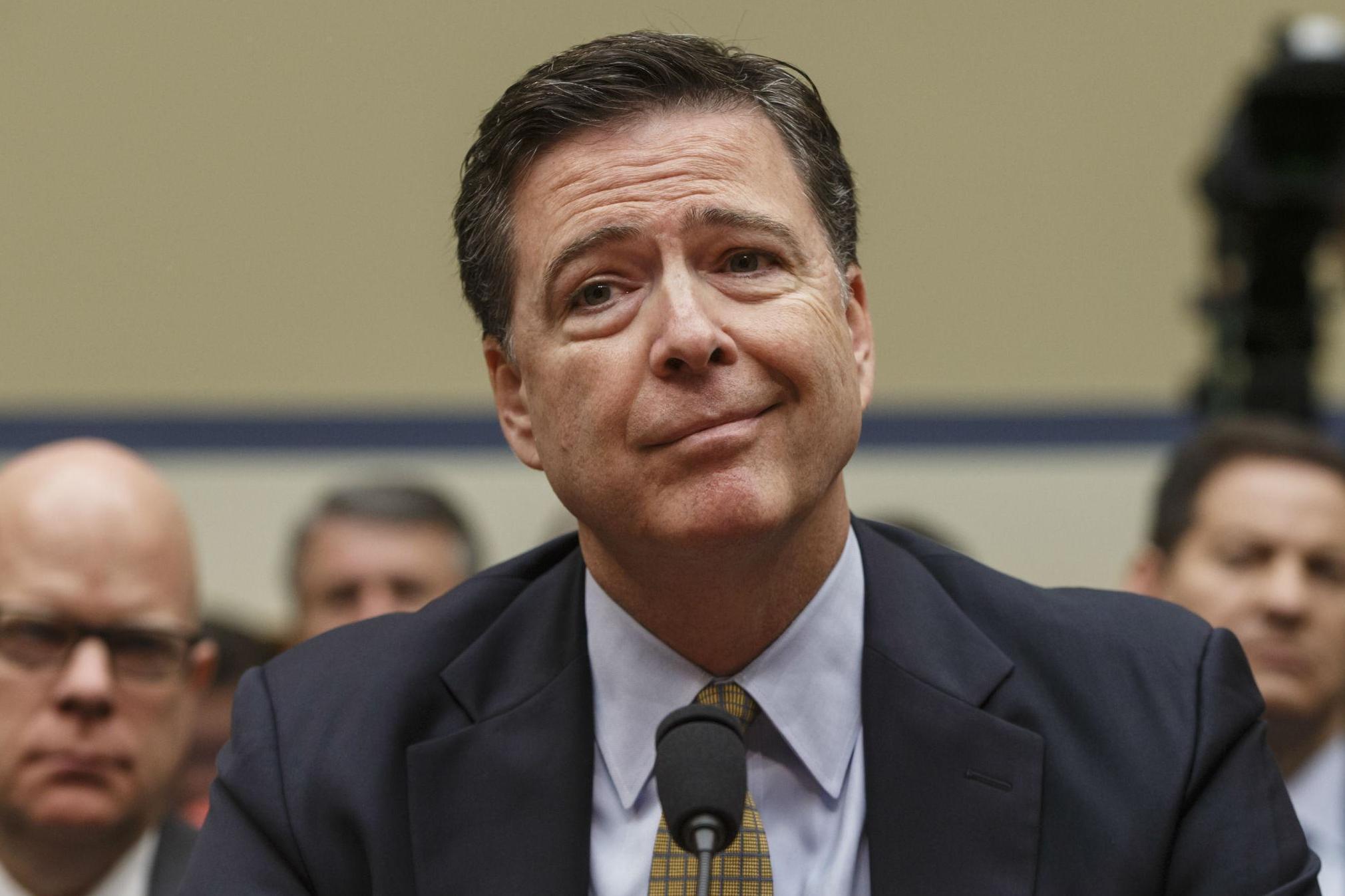In context, James Comey’s decision to reopen the investigation into Clinton’s emails was understandable – but paranoid
It’s worrying that an FBI director fears that reasonable actions by reasonable people will nonetheless be damned by pro-conspiracy rhetoric in a post-truth world


The FBI has been at the centre of its fair share of conspiracy theories over the years; just ask Mulder and Scully, or now indeed, James Comey.
Just over a week ago Donald Trump was seemingly thrown a lifeline in his race for the White House, when Comey, the FBI’s director, informed Congress that the Bureau was reopening its investigation into Hillary Clinton’s email use. The shock announcement followed the discovery of additional emails on a device belonging to Anthony Weiner, who is the subject of an unconnected investigation, and whose estranged wife, Huma Abedin, is a key Clinton aide. It appeared these might shed more light on Clinton’s use of a private email server for handling classified information.
When the FBI had previously come to the conclusion that Clinton had acted carelessly but not unlawfully in using a private server, Trump had of course been outraged in his disbelief: “Crooked Hillary” became a mantra. But Comey’s declaration on 28 October led him to change his tune.
The FBI, he said, “would never have reopened this case at this time unless it were a most egregious offence”. And he was generous enough to “give them credit for having the courage to right this horrible wrong”. Democrats, by contrast, were appalled, convinced that the FBI’s decision to go public so close to the election, before any emails had actually been considered, was an act of political sabotage.
Now, with Comey having informed Congress that an examination of the emails has unearthed nothing to alter its conclusion that Clinton committed no criminal wrongdoing, roles are reversed once again. The Democrat camp has expressed, with unconvincing nonchalance, gladness that the matter is “resolved”. Trump’s rage by contrast has gone into overdrive; even worse, so has his inner conspiracy theorist.
First, he questioned whether it was even possible for the FBI to have examined the matter properly. “You can’t review 650,000 emails in eight days,” he told supporters at a rally in Michigan. (Although former CIA agent turned whistle-blower, Edward Snowden, helpfully tweeted that it was eminently feasible.) Second, he suggested that the verdict was simply further evidence of an establishment plot against his candidacy: “Right now she’s being protected by a rigged system. It’s a totally rigged system.”
For some time, Trump has queried the fairness of the electoral process. Putting aside the Florida recount in 2000, never have serious questions been raised over the veracity of the American vote. When Trump refused, during the last TV debate, to commit to accepting the outcome of the election, the spectre was raised of a serious constitutional crisis. His latest posturing taps into the same doubts: Trump simply does not accept the pronouncements of state institutions; as such, anything up to and including the rule of law is open to challenge. We had a taste of the same thing in this country last week with attacks on high court judges over their decision that Parliament must be consulted before Britain formally triggers its withdrawal from the EU.
As the competing parties in the American election either swing behind or against the FBI, it is easy to cast aspersions on James Comey’s actions. His decision to go public with the news that the FBI was to examine further emails was regarded by some as peremptory and by others as an attempt to sway the election. Likewise, the announcement today that nothing of great moment has been found in those emails is damned as either unsatisfactorily vague or, in Trumpland, as part of a grand conspiracy.
Yet this is the kind of pressure which Comey has been under for months. Until Clinton was first cleared of criminal wrongdoing in July, Democrats pointed to Comey’s well-known support of the Republican Party as evidence that he was inclined against their woman. When the FBI announced that no evidence of criminality had been found, Comey was dismissed by Trump fans as a government stooge. No wonder that in the subsequent period he has been so alive to the potential for trouble. In that context, his decision last month to reopen the FBI’s enquiries – and to go public about doing so – and the announcement now of the bureau’s findings is, even if questionable, nonetheless eminently understandable. When every action is under the microscope, one answer is to be utterly transparent.
The problem is that this is not necessarily evidence of good decision-making or even of welcome openness, but rather of paranoia; of a fear that reasonable actions by reasonable people will nonetheless be damned by pro-conspiracy rhetoric in a post-truth world. That is something which any right-thinking person should stand up against, whether in the UK, the US or elsewhere. For Americans, it will become an awful lot harder if Trump becomes President.

Join our commenting forum
Join thought-provoking conversations, follow other Independent readers and see their replies